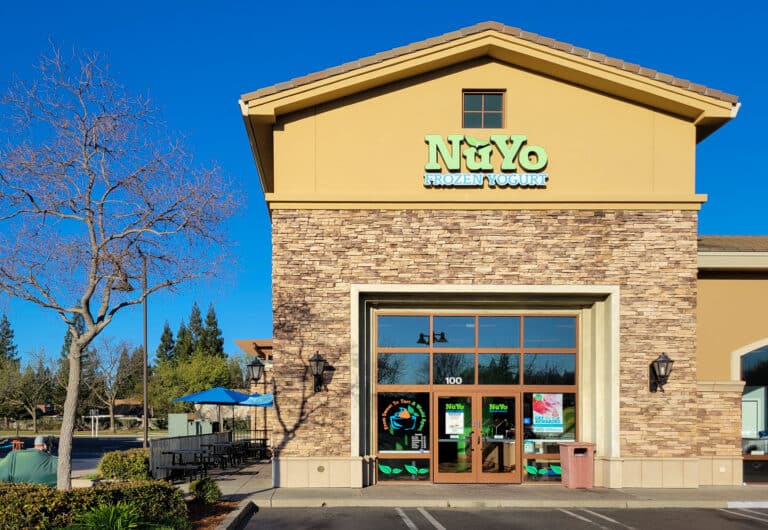The 7 Best Steakhouse & Grill Restaurant Franchises of 2025

The steakhouse restaurant industry remains a top choice for American diners, known for offering premium cuts of meat and an elevated dining experience.
The U.S. full-service restaurant industry, which includes steakhouses, is expected to reach $320 billion by 2024, fueled by consumer demand for high-quality, indulgent meals.
For entrepreneurs, investing in a steakhouse franchise provides a lucrative opportunity, backed by strong brand recognition and proven success.
In this guide, we’ll explore the best steakhouse franchises of 2025, covering key details such as startup costs, franchise fees, and potential earnings to help you make a well-informed investment decision.
The Best Steakhouse & Grill Restaurant Franchises of 2025
| Franchise | Franchising Since | Locations* | Investment Range | Revenue |
|---|---|---|---|---|
| Texas Roadhouse | 1995 | 62 | $2,648,000 – $6,802,000 | $4,789,000 |
| Ruth’s Chris Steak House | 1977 | 51 | $2,540,000 – $5,933,000 | $4,603,000 |
| Dickey’s Barbecue Pit | 1994 | 475 | $182,000 – $466,000 | $257,000 |
| Famous Dave’s | 1998 | 81 | $482,000 – $2,921,000 | $2,701,000 |
| Moe’s Southwest Grill | 2001 | 606 | $745,000 – $1,819,000 | $1,158,000 |
| Chili’s | 2010 | 101 | $1,804,000 – $6,504,000 | Undisclosed |
| Applebee’s | 1986 | 1535 | $2,428,000 – $7,084,000 | $2,680,000 |
Texas Roadhouse
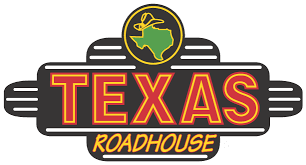
Franchising Since: 1995
Franchised Units: 62
Initial Investment: $2,648,000 – $6,802,000
Franchise Fee: $40,000
Royalty Fee: 4%
Texas Roadhouse is a fast-growing steak restaurant serving classic American cuisine, from steaks, ribs, and sides made from scratch and fresh-baked bread. Kent Taylor opened the first Texas Roadhouse in Clarksville, Indiana, in 1993.
Headquartered in Louisville, Kentucky, Texas Roadhouse Inc. started as a family restaurant where kids and adults enjoyed delicious food and a lively atmosphere. The Texas Roadhouse’s mission is “legendary Food, Legendary Service,” meaning that the company aims to stay in business by providing quality comfort food to its customers.
Known for its laid-back vibes, large portions for the price, and high-quality steaks, Texas Roadhouse is a perfect choice for many families looking for an ideal dine-out experience.
As of 2022, Texas Roadhouse has 575 restaurants in 49 states, with large concentrations in Texas, Florida, Ohio, and Indiana. Most of these are company-owned: there were only 69 franchises in 2022.
Ruth’s Chris Steak House
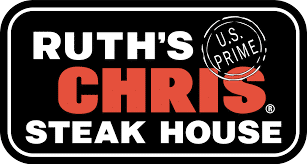
Franchising Since: 1977
Franchised Units: 51
Initial Investment: $2,540,000 – $5,933,000
Franchise Fee: $150,000
Royalty Fee: 5%
Ruth’s Chris Steak House is a franchised chain of steakhouses headquartered in Winter Park, Florida.
The company’s menu includes steaks & chops, seafood & specialties, salads, sides, specialty diets, and children’s menus.
Ruth’s Chris Steak House was founded in 1965 by Ruth Fertel in New Orleans, Louisiana, who purchased Chris Steak House, which she later renamed Ruth’s Chris Steak House in 1977. The brand has transformed into one of the biggest fine dining restaurants, with over 55% franchised locations and a presence in the US and six other countries.
As a leader in upscale steak houses, Ruth’s Chris Steak House provides franchise owners with different ways to stand out and offers their guests an outstanding experience through the brand’s dining options, such as traditional dining, private events, online ordering, gift cards, or at one of its special events.
Ruth’s Chris Steak House began franchising in 1976, and currently, it has over 150 locations globally, with 54 franchises in the US.
Dickey’s Barbecue Pit
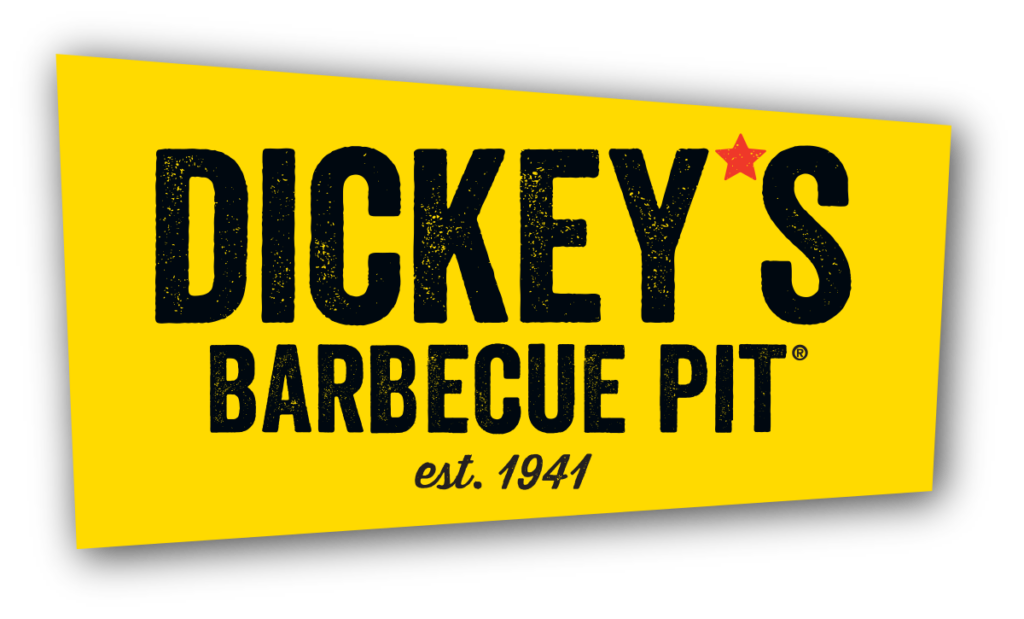
Franchising Since: 1994
Franchised Units: 475
Initial Investment: $182,000 – $466,000
Franchise Fee: $20,000
Royalty Fee: 6%
Dickey’s Barbecue Pit is a barbecue restaurant chain headquartered in Dallas, Texas. Its menu includes freshly prepared barbecue-style meats, smoked turkey, marinated chicken, and other food products.
Dickey’s Barbecue Pit was founded in 1941 by Travis Dickey, a WWI veteran who cooked up traditional, hickory-smoked barbecue in a small restaurant nestled in the heart of his hometown of Dallas, Texas. It began franchising in 1994 and has grown to over 550 locations in the US and eight other countries.
Today, still a family-owned concept, Dickey’s Barbecue Pit has grown to be one of the largest BBQ franchises in the country and has numerous possibilities for franchisees to build and grow their businesses.
Famous Dave’s
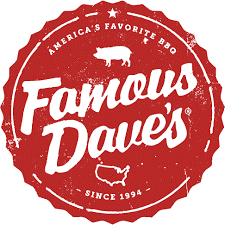
Franchising Since: 1998
Franchised Units: 81
Initial Investment: $482,000 – $2,921,000
Franchise Fee: $45,000
Royalty Fee: 5%
Famous Dave’s is an American chain of barbecue restaurants based in Minnetonka, Minnesota.
The chain was founded by Dave Anderson in 1994 in Hayward, Wisconsin.
Famous Dave’s offers pork ribs, chicken, beef brisket, burgers, salads, soups, desserts, and several flavors of barbecue.
Its franchising journey began in 1998 and currently has over 100 locations in 32 states in the US and around the world.
Moe’s Southwest Grill
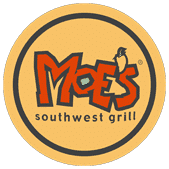
Franchising Since: 2001
Franchised Units: 606
Initial Investment: $745,000 – $1,819,000
Franchise Fee: $30,500
Royalty Fee: 5%
Moe’s Southwest Grill is an American fast-casual restaurant chain owned by Focus Brands, along with Cinnabon, Carvel, McAlister’s Deli, Auntie Anne’s, Jamba, and Schlotzsky’s.
The chain was founded by H. Martin Sprock III in 2000 in Atlanta, Georgia.
It serves mainly Mexican-style cuisine and other southwestern fare such as burritos, tacos, quesadillas, nachos, salads, stacks, burrito bowls, and house-made seasonal salsas. It also offers customized menu items, and every order comes with chips and salsa.
Moe is an acronym for “musicians, outlaws, and entertainers,” and musicians form part of its restaurant design.
Moe’s Southwest Grill began franchising in 2001, and now it has 650 stores in the US and globally.
Chili’s

Franchising Since: 2010
Franchised Units: 101
Initial Investment: $1,804,000 – $6,504,000
Franchise Fee: $60,000
Royalty Fee: 4%
Chili’s is an American casual dining restaurant chain owned and operated by Brinker International.
The chain was founded in 1975 by Larry Lavine in Dallas, Texas, where it is headquartered.
It offers a variety of appetizers, chicken, beef, and seafood entrees, hamburgers and other sandwiches, salads, barbecue ribs, and other southwestern and Mexican-style cuisine, flatbreads, shrimp tacos, quesadillas, fajitas, desserts, and beverages.
Chili’s franchising journey started in 1984, and today the brand has over 1,600 stores in the US and around the world.
Applebee’s
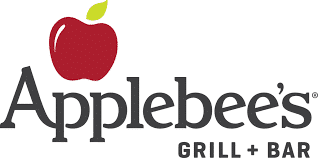
Franchising Since: 2010
Franchised Units: 101
Initial Investment: $1,804,000 – $6,504,000
Franchise Fee: $60,000
Royalty Fee: 4%
Applebee’s is an American international restaurant chain focusing on mainstream American dishes such as salads, chicken, pasta, burgers, and “riblets” (Applebee’s signature dish).
Applebee’s was founded by Bill and T. J. Palmer in 1980 and opened its first store in Atlanta, Georgia.
On top of its American dishes menu, it serves steak and tacos, and most locations offer a full bar for alcoholic beverages. Applebee’s concept is casual dining, but it also provides catering, pick-ups, and online deliveries.
It began franchising in 1983 under the brand name “Applebee’s Neighborhood Grill + Bar”. The chain is owned by Dine Brands Global Inc., headquartered in Glendale, California.
Today, the chain has over 1,700 units in the US and other countries worldwide.
Disclaimer
Disclaimer: This content has been made for informational and educational purposes only. SharpSheets is an independent educational resource and is not affiliated with, endorsed by, or representing any franchisor mentioned on this website. Where noted, figures are taken from the franchisor’s Franchise Disclosure Document (FDD). In some cases, we may provide independent calculations or estimates based on publicly available information. We do not make any representation or warranties with respect to the accuracy, applicability, fitness, or completeness of the information presented in the article. You should not construe any such information or other material as legal, tax, investment, financial, or other professional advice. Nothing contained in this article constitutes a solicitation, recommendation, endorsement, advertisement, or offer to buy or sell any franchises, securities, or other financial instruments in this or in any other jurisdiction in which such solicitation or offer would be unlawful under the franchise and/or securities laws of such jurisdiction.
All content in this article is information of a general nature and does not address the detailed circumstances of any particular individual or entity. Nothing in the article constitutes professional and/or financial and/or legal advice, nor does any information in the article constitute a comprehensive or complete statement of the matters discussed or the law relating thereto. You alone assume the sole responsibility of evaluating the merits and risks associated with the use of any information or other content in this article before making any decisions based on such information or other content.


